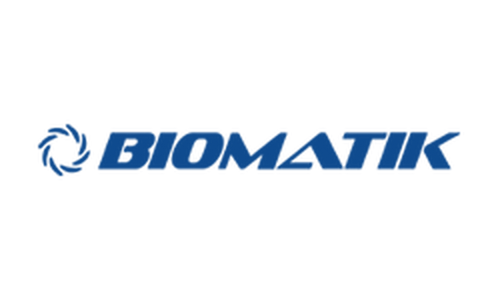Product Description
Recombinant Human Transforming growth factor beta-2 proprotein (TGFB2), partial (Active) is available at Gentaur for Next week Delivery.
Gene Name: TGFB2
Alternative Names : Transforming growth factor beta-2;TGFB2;Polyergin;G-TSF;Glioblastoma-derived T-cell suppressor factor;Cetermin;BSC-1 cell growth inhibitor;TGF-beta-2
Expression Region : 303-414aa
AA Sequence : ALDAAYCFRNVQDNCCLRPLYIDFKRDLGWKWIHEPKGYNANFCAGACPYLWSSDTQHSRVLSLYNTINPEASASPCCVSQDLEPLTILYYIGKTPKIEQLSNMIVKSCKCS
Sequence Info : Full Length of Mature Protein
Tag Info : Tag-Free
Theoretical MW : 12.7 kDa
Storage Buffer : Lyophilized from a 0.2 ?m Filtered 4 mM HCl
Endotoxin Level : Less than 1.0 EU/µg as determined by LAL method.-
Biological Activity : The ED50 as determined by its ability to inhibit the IL-4-dependent proliferation of TF-1 mouse T cells is less than 15 ng/ml.
Storage : Short term: -20°C; Long term: -80°C. Minimize freeze and thaw cycles.
Research Area : Cancer
Restriction : For Research Use Only. Not for use in diagnostic procedures, drug use, or for administration to humans or animals.
Relevance : Transforming growth factor beta-2 (TGF-?2) is a secreted protein which belongs to the TGF-beta family. It is known as a cytokine that performs many cellular functions and has a vital role during embryonic development. The precursor is cleaved into mature TGF-beta-2 and LAP, which remains non-covalently linked to mature TGF-beta-2 rendering it inactive. It is an extracellular glycosylated protein. It is known to suppress the effects of interleukin dependent T-cell tumors. Defects in TGFB2 may be a cause of non-syndromic aortic disease (NSAD).
Function : TGF-beta 2 has suppressive effects on interleukin-2 dependent T-cell growth.
Involvement in disease : Loeys-Dietz syndrome 4 (LDS4)
Subcellular location : Secreted
Protein Families : TGF-beta family
Tissue Specificity :
Paythway : Hipposignalingpathway
Uniprot ID : P61812
 Euro
Euro
 British Pound
British Pound
 US Dollar
US Dollar








